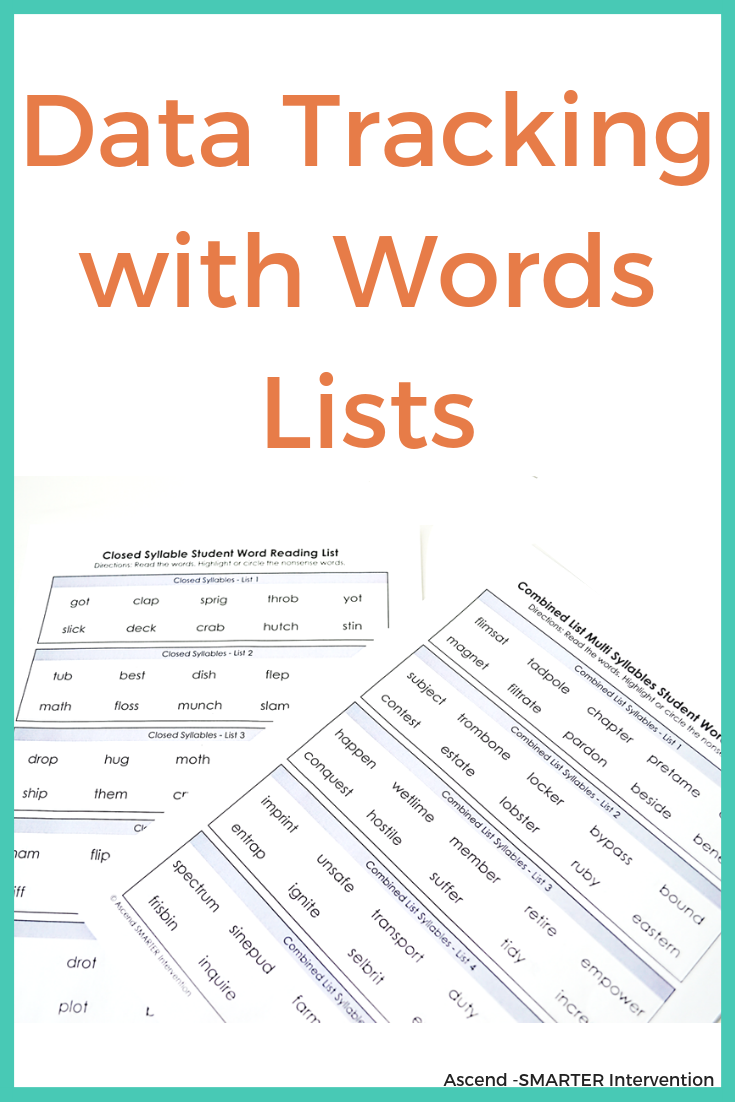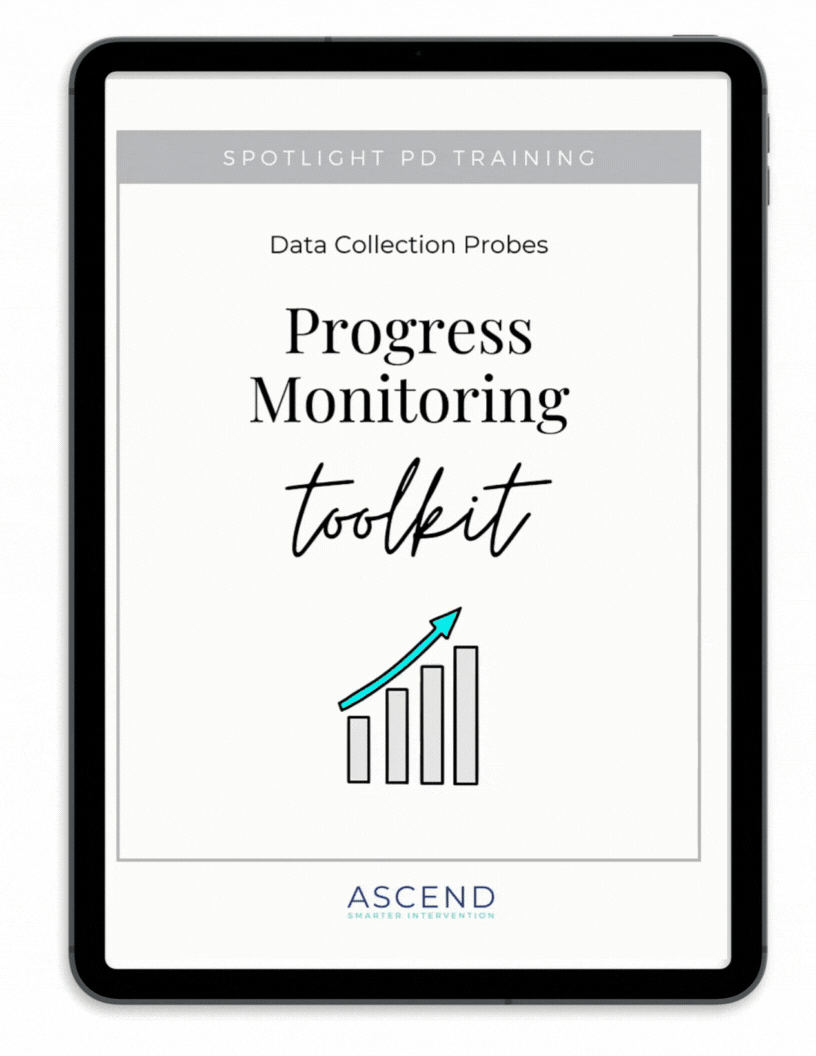Data Tracking with Word Lists
We get it, data tracking can feel tedious on top of everything else you’re managing in intervention. That’s why it helps to have simple tools you can use during lessons without slowing things down. One of our favorites? Word lists.
Word lists make progress monitoring quick, targeted, and easy to analyze. They allow you to check whether students are mastering the patterns you’ve explicitly taught while giving you clear percent-accuracy data to guide next steps.
Why Track with Word Lists?
When we measure progress in literacy intervention, we need to know:
Are students retaining previously taught concepts?
Are they applying phonics skills to decode accurately?
Are they moving toward mastery across all syllable types?
Word lists give us a straightforward way to answer these questions. Because we spiral back to review concepts regularly, it makes sense to build goals around word-reading accuracy and use word lists as a consistent measure.
How to Use Word Lists for Progress Monitoring
Step 1: Prep Materials
Print a student word-reading list aligned to a specific pattern. You can print two copies if you want one to mark, or you can simply note the words they missed in your notebook (that’s what I usually do).
Step 2: Set the Interval
Decide how often you’ll track progress. We recommend weekly, but make it work for you!
Step 3: Have Students Read
Ask the student to read the words from the word list you prepped. Again, mark down the patterns/words that were hardest for them. If you’re working with a group, you can focus on tracking accuracy for just one student (or we have a resource we LOVE that has multiple sets, like Set 1, Set 2, and we might have the first student read Set 1, the second student read Set 2, and so on.
Step 4: Analyze Accuracy
Calculate percent accuracy and look for patterns of strength or weakness. For example, if a student is consistently struggling with vowel teams or closed syllables, you know where to target additional practice.
That’s it! Super simple!
Okay great, so now what?
Well, if you’re anything like us…that all sounds great in theory until you’re trying to hunt down a bunch of word lists with different patterns that are different from the words you just used in your lessons.
If you’re looking for a resource that has tons of done-for-you word lists ready to implement in your next literacy intervention session, then look no further!
In our professional development training, Progress Monitoring Made Simple: How to Set Effective Goals & Track What Matters, you get access to our comprehensive Progress Monitoring Toolkit with hundreds of progress monitoring probes you can easily integrate to monitor several skills, including specific phonics pattern concepts like closed syllables (CVC, blends, digraphs), vowel-consonant-e, r-controlled, vowel teams, stable final, the list goes on and on!
Seriously, check this out…it’s been an absolute GAME changer in our progress monitoring. It allows us to check in with our students quickly each week. Plus, having a binder filled with these ready-to-use prompts and word lists has felt like an organizational dream!!!



